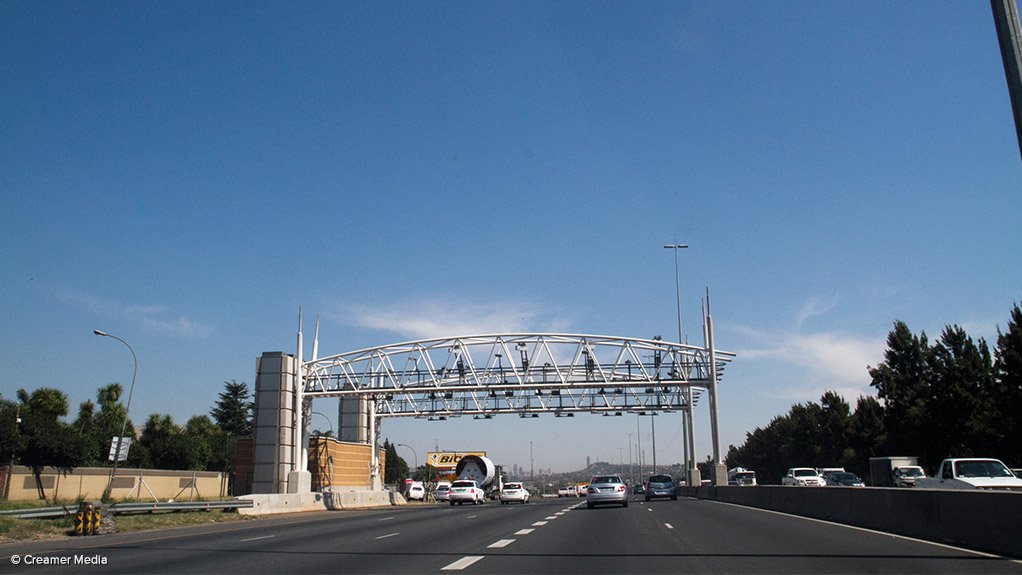While the South African Chamber of Commerce and Industry (Sacci) supported the Gauteng Freeway Improvement Programme (GFIP) and infrastructure expansion in principle, the administration costs of e-tolling wERE too high, it said in a presentation to the Gauteng e-toll review panel on Thursday.
In the presentation, Sacci noted that the reported 40% administration costs to revenue were inefficient, stating that this high cost, which it believed to be the system’s biggest problem, also weakened public trust in the system and engendered a culture of tax protest.
It further said that, while it was in favour of the user-pays principle, the GFIP could be funded through a fuel levy increase, which Sacci said was its fundamental proposal.
The chamber pointed out that this mechanism, which had already been implemented in countries such as Argentina, Japan, New Zealand, the US, Ghana and Zambia, would be cheaper to administer and would be self-enforcing.
Meanwhile, the organisation revealed that it had conducted a survey among its members in August this year, with about 30% of respondents saying the cost of e-tolls was sizeable and reduced a company’s cash buffer.
Another 20% to 25% indicated that the cost was severe and forced staff and/or investment cuts, while about 5% said the cost was unmanageable.
About 15% indicated that the cost was an issue but stated that the company could manage to shift this cost to its clients, while another 30% stated that it saw only a slight cost and minimal impact resulting from e-tolls.
Sacci stated that this survey showed that e-tolls were a significant cost to business, which would impact on job creation and economic growth.
Cost mitigation by companies, in turn, led to higher client charges, lower financial security, staff and investment cuts or closing down businesses, the organisation noted.
The survey had also shown that Sacci members believed the administration of e-tolling to be poor.
SANRAL POSITION
Meanwhile, the South African National Roads Agency Limited (Sanral) also on Thursday noted that, while it would not participate in the review process as it believed “participation would be inappropriate as the matter had been decided in relevant structures”, all documents regarding the GFIP process were publicly available should the panel wish to peruse them.
The roads agency noted that the documents on the GFIP answered questions as to how it was conceived, the role played by the Gauteng provincial government, why it was decided to go the e-toll route, the advantages of the upgrading of these highways and the proactive steps to favour the poorer communities.
“Open-road tolling was only introduced after comprehensive studies by respected economists pointed to the cumulative negative impact of traffic congestion on economic activity. A clear case was made to improve the quality of the highway network in the province and to address the high impact of congestion, wasted fuel, travel times and productivity,” Sanral stated.
“We took a long-term perspective and also considered the consequences for the economy and its ability to create jobs and growth opportunities should the road infrastructure not have been addressed,” Sanral communications head Vusi Mona said.
“Among the reasons why this specific method of funding was chosen is that it provides options that favour poorer communities through exemptions, special discounts and flexible tariffs.
“A blanket increase in the fuel levy, as favoured by Congress of South African Trade Unions and other opponents, such as the Opposition to Urban Tolling Alliance and the Democratic Alliance, would not have provided Sanral with this flexibility,” the roads agency added.
Mona said Sanral implemented government policy and, therefore, any change or review of policy was a political process that the agency would not enter.
EMAIL THIS ARTICLE SAVE THIS ARTICLE
To subscribe email subscriptions@creamermedia.co.za or click here
To advertise email advertising@creamermedia.co.za or click here











